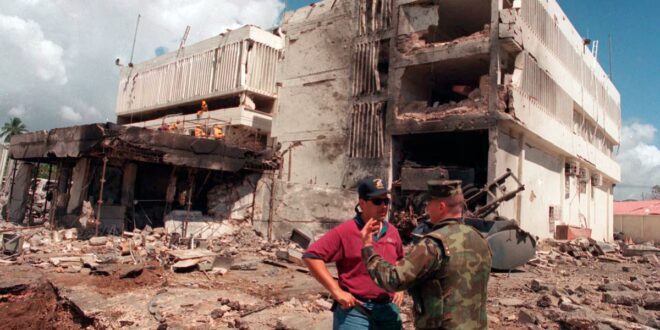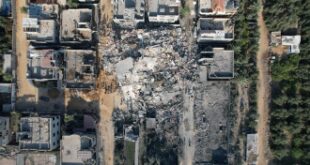Saif al-Adel, who is wanted by the United States in connection with the 1998 bombings of its embassies in Tanzania and Kenya, has been identified by many countries as the new “de facto and uncontested” leader of al-Qaeda, according to a report by U.N. experts. Many U.N. member states also believe that Adel is located in Iran, the report said.
Adel is a former member of the Egyptian military and later fought the Soviets when they invaded Afghanistan in 1979. He is also a charter member of al-Qaeda and was a loyalist of Osama bin Laden, the mastermind of the Sept. 11, 2001, terrorist attacks, according to a profile of Adel written by the counterterrorism expert Ali Soufan.
When U.S. forces killed bin Laden’s successor, Ayman al-Zawahiri, in Afghanistan last year, Adel was seen by many experts as the terrorist group’s probable next leader. U.S. authorities had previously offered a $10 million reward for information leading directly to his “apprehension or conviction.”
But al-Qaeda has not publicly declared Adel its new leader, possibly because of the political sensitivities of the Taliban regime in Afghanistan, according to the report, which was circulated to the U.N. Security Council on Monday.
The Taliban, which has been seeking a measure of international legitimacy since it retook power in 2021, probably wants to avoid the embarrassment of acknowledging that it harbored Adel’s predecessor, the report said, citing assessments from member states. The group had previously signed an agreement with the United States pledging not to allow terrorist groups with international aims to operate out of territory it controls.
Rita Katz, an extremism expert and director of the SITE Intelligence Group, had raised the possibility of al-Qaeda naming a new leader under an alias and not unveiling a “face to match the name to,” when U.S. forces killed Zawahiri.
But many U.N. member states suspected that the “key factor” behind al-Qaeda’s silence is Adel’s suspected longtime residence in Shiite-majority Iran, which is led by Shiite clerics. The Sunni terrorist group has long viewed Shiite Muslims as apostates, according to a report by Brookings.
Adel’s alleged presence in Iran poses “difficult theological and operational questions” for al-Qaeda, the U.N. report’s authors say. (One unidentified U.N. member state denied the presence of any al-Qaeda members or dependents in the country.)
The alleged terrorist leader is believed to have been born in the early 1960s. He has been based in Iran since 2002 or 2003, when he went into hiding after the Sept. 11 attacks, Soufan wrote in an article for the CTC Sentinel, which is published by the Combating Terrorism Center at the U.S. Military Academy.
Adel was held by Iranian authorities for some years before a prisoner swap between Tehran and al-Qaeda that was reported in 2015, but his apparent continued presence there is a sign of pragmatism, wrote Soufan, a former FBI official who investigated the 1998 embassy bombings. The attacks killed 224 people and wounded more than 4,000.
“Despite the hateful necessity” of living under Shiite rule, “his best chance of survival, and therefore of continued effectiveness in the jihad, lay in a return to Iran,” Soufan wrote.
Not much is certain about the militant leader, with only three images of him known to exist, according to Soufan, who added that he stands out even among other al-Qaeda members for his “lack of remorse.”
U.N. member states assessed that there has been “no significant” recent change in al-Qaeda’s strength, according to the report. It said the threat from the group and its affiliates is elevated in and around conflict zones but remains “relatively low in other areas.”
 Eurasia Press & News
Eurasia Press & News




